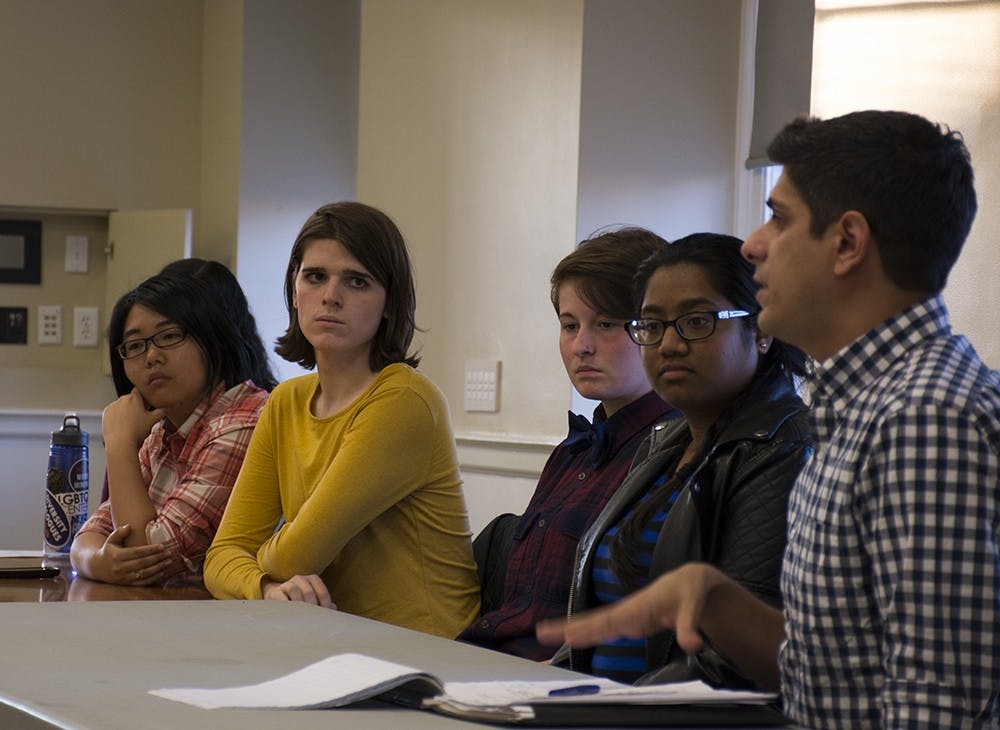Students met Tuesday night in a town hall meeting with representatives of Student Council and the Queer Student Union to discuss plans to implement gender-neutral housing in upcoming years.
The event was sponsored by QSU and Student Council and was organized by QSU Vice President of Student Activism Shannon Khurana, a second-year College student.
The discussion included a panel of representatives from the LGBTQ Speakers Bureau of varying gender identities and sexualities recounting their experiences with gendered housing and discussing the University’s policies on gender identity more generally. Student Council representatives shared their plans to advocate for the issue, and all students were invited to discuss and share their thoughts on gender identity on Grounds and the possibility of gender-neutral housing options.
The University’s current policy is to accommodate the needs of any transgender or non-binary student who contacts Housing and Residence Life. There are, however, no gender-neutral on-Grounds housing options. All first-year halls or suites are separated by gender, and all upperclassmen apartments are as well.
Student Council College Representative Brett Curtis, a second-year student, said he and other council members have been meeting with administration to discuss the issue.
A recent survey of the student body with 680 respondents found that 46 percent of students disagreed with the statement “I think U.Va. does enough to make transgender, gender nonconforming and LGBTQ individuals feel safe and comfortable.”
Curtis said the Copeley Apartments on North Grounds will become less separated by gender next semester, which he views as important progress for students of non-binary gender identity. Apartments in Copeley will now be open to anyone — regardless of gender — rather than being male or female apartments.
“I think this is the first positive step the University has taken in a long time,” Curtis said.
However, he cautioned against moving too fast toward the goal of non-gendered housing, citing an example at University of North Carolina at Chapel Hill in which the Board of Governors shut down plans to establish gender-neutral residences.
Third-year College student Jackson Nell, a Student Council Legislative Affairs board member, also attended the town hall meeting and emphasized the importance of tailoring University policy to the experiences of each individual student. He said Copeley is being used as a test case for the idea of gender-neutral housing, and he is optimistic about the results.
“So far the response has been great,” Nell said.
Panel members talked about the pressures of assuming gender identity based on space they are in, feeling uncomfortable in first-year halls and facing harassment and scrutiny from fellow students in dorms. One student said she was told she shouldn’t shower with other girls because she identifies as a lesbian.
University Coordinator for LGBTQ Services Scott Rheinheimer also spoke at the meeting. He said moving toward gender-neutral housing is progress but explained that there are many administrative challenges, especially for a public university receiving government funding.
However, many attendees agreed simply discussing the issues can be a step forward.
“Until we are educating people on the need for this, we are never going to make any headway,” Curtis said.
Correction: This article previously stated the panel at the event was comprised of QSU members. This article has also been updated to include the organizer of the event.







